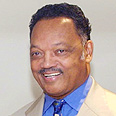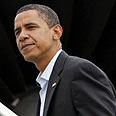C’est bien connu : les Britanniques sont des pervers. Et leur perversité a des effets géopolitiques à long terme, le plus souvent maléfiques, mais qui peuvent se révéler utiles dans la conjoncture internationale actuelle. Ainsi en est-il de l’étonnante pérennité de la Jordanie comme parangon de la “modération” arabe dans un environnement marqué par la poussée des forces jihadistes et islamistes radicales.
Sans Lawrence d’Arabie et ses amis du Foreign Office, il est peu probable ce pays se soit érigé de lui-même en royaume indépendant issu de la décomposition de l’Empire ottoman. Ce morceau de désert sillonné par des tribus nomades de Bédouins en perpétuel conflit les unes avec les autres eut son heure de gloire dans les premiers siècles de notre ère avec les Décapoles romaines et le bref mais brillant royaume des Nabatéens autour de Pétra.
Jusqu’en 1916, personne ne se souciait trop de cet espace désolé, dépourvu de richesses naturelles, considéré comme une prolongation de la Syrie au nord, et de l’Irak à l’est, de l’Arabie au sud.
La création en 1921 du Royaume de Transjordanie, avec à sa tête Abdallah, chef du clan hachémite de La Mecque, est le résultat d’un compromis sur le partage d’influence de la France et de la Grande-Bretagne au Levant, et du souci de Londres de diviser les Arabes pour mieux les dominer : au clan Séoud l’Arabie, les lieux saints et le pétrole, au clan hachémite, descendant du Prophète, l’Irak et la Transjordanie. La Syrie et le Liban furent placés sous la tutelle de la France.
La création en 1948 de l’Etat d’Israël fit tomber la Cisjordanie palestinienne dans le giron jordanien jusqu’en 1967 et ce territoire, occupé depuis quarante ans par Israël, n’est pas destiné, en cas de règlement du conflit, à redevenir jordanien. Ces événements ont provoqué un bouleversement démographique du pays, qui compte aujourd’hui plus de la moitié de citoyens d’origine palestinienne, le reste étant composé de Bédouins majoritairement sédentarisés dans les grandes villes, principalement la capitale, Amman, où réside près de la moitié des six millions d’habitants du Royaume.
Etat dépourvu de nation, la Jordanie est gérée de manière habilement clientéliste par une dynastie dont le tropisme pro-occidental fait partie des gènes : les désastres nasseriens dans lesquels le royaume fut entraîné contre ses inclinations profondes ont vacciné feu Hussein et sa descendance contre toute nouvelle aventure guerrière panarabe. La position jordanienne est donc un modèle de modération selon les critères occidentaux : un traité de paix, avec échange d’ambassadeurs a été conclu avec Israël en 1994 et le royaume sert de base arrière à la coalition dirigée par les Etats-Unis depuis 2003 en Irak.
Au sein de la société, l’affaire se présente de manière bien différente : de violentes manifestations anti-américaines se sont déroulées à Amman lors de l’intervention en Irak. Aujourd’hui encore, on peut voir des portraits de Saddam Hussein à la devanture de quelques boutiques et on évoque volontiers le bon vieux temps où le dictateur irakien faisait cadeau du pétrole au petit voisin pauvre…
La monarchie n’a pourtant pas sérieusement été ébranlée par ce hiatus entre la position officielle du roi Abdallah et de son gouvernement et les sentiments de la majorité de la population. Certes, les méthodes policières et judiciaires pour réprimer les activités des mouvements islamistes et jihadistes ne sont pas des plus suaves – elles sont montrées régulièrement du doigt dans les rapports d’Amnesty international. Mais la stabilité remarquable du royaume est davantage liée à la résignation réaliste de la majorité de la population qu’à la férocité de la répression. Eut égard aux pratiques en vigueur dans les pays alentours comme l’Egypte ou la Syrie, la presse jordanienne est relativement libre et la critique de la politique officielle est tolérée, pour autant qu’elle ne mette pas directement en cause le souverain et sa famille. L’existence d’une multitude de parti politiques, la plupart représentés au Parlement, ne doit pas faire illusion : derrière leur dénomination à caractère idéologique se cache la réalité clanique et tribale qui structure la société.
Les Palestiniens, même s’ils méprisent cette monarchie de Bédouins, ont encore en mémoire ce septembre noir1 de 1970 où les troupes fidèles au roi Hussein massacrèrent les fedayins de l’OLP qui prétendaient dicter leur loi à Amman. Jouissant de la nationalité jordanienne, intégré à la société, à la différence de leurs compatriotes qui pourrissent dans les camps libanais ou syriens, ils sont les principaux bénéficiaires de l’économie assistée du royaume. La “bonne conduite” internationale de la Jordanie lui vaut un chèque annuel de 600 millions de dollars de Washington, l’aide la plus importante par tête d’habitants accordée à un pays tiers, à l’exception d’Israël.
Essentiellement tertiaire, l’économie de la Jordanie a bénéficié, ces dernières années, du transfert de quelques sièges de banques et de sociétés internationales ayant quitté le chaos libanais. De plus, quelques milliers de prébendiers saddamistes irakiens sont venus se réfugier avec leur magot à Amman dès le début des hostilités : ce sont eux qui construisent des horreurs architecturales bling-bling dans Abdoun, le quartier huppé de Amman. Epargnée par les rivalités religieuses – les musulmans en quasi-totalité sunnites cohabitent sans heurts avec une minorité chrétienne –, la Jordanie officielle pratique un islam bien tempéré : la reine Rania ne porte jamais le hijab dans ses apparitions publiques. Cela n’empêche pas la société, en particulier les couches les plus défavorisées, de se tourner vers les islamistes radicaux qui pallient l’inexistence ou la mauvaise qualité des services publics, notamment dans la santé et l’éducation.
Le contraste entre écoles et universités privées, qui mettent leurs installations rutilantes à la disposition des familles fortunées, et la déréliction des établissements publics est criant. En Jordanie, l’idée que l’Etat doit se soucier du bien-être de la population dans son ensemble en pratiquant une redistribution d’une partie des richesses au profit des moins fortunés se résume à quelques dons de la cassette royale à des institutions charitables. En la matière, un pays “modéré” se distingue fort peu d’un pays “extrémiste”, la seule différence étant que la rente dont une minorité de la population accapare l’essentiel n’est pas pétrolière, mais directement issue de la “modération” de ses dirigeants.
La monarchie hachémite n’a qu’une hantise : que le blocage des négociations israélo-palestiniennes ne fasse ressurgir l’idée d’un retour de la Cisjordanie dans le royaume, ce qui rendrait le gouvernement jordanien responsable du maintien de l’ordre et de la lutte contre le terrorisme dans ce territoire. Abdallah Ier avait été assassiné par un extrémiste palestinien. Son arrière-petit-fils, Abdallah II, entend bien jouir le plus longtemps possible d’une existence agréable partagée entre son palais d’Amman et sa résidence londonienne.
- Bien que ce soit septembre 1970 qui fasse date dans l’histoire palestinienne sous le nom de “septembre noir”, les combats qui ont opposés pendant la deuxième quinzaine du mois l’armée jordanienne aux milices dirigées par Yasser Arafat se sont soldé par un “match nul”, qui s’est traduit par un compromis signé au Caire et reconnaissant le statut spécial de la résistance dans le royaume hachémite. Ce n’est qu’en 1971 que le roi Hussein prend sa revanche et arrive en juillet à mettre fin à la présence palestinienne armée et à récupérer l’intégralité de sa souveraineté. ↑
















